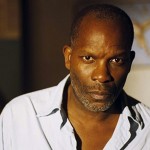
Roger Ebert: In Memorial
I will not presume to write an obituary for Roger Ebert, that function will be performed by the newspapermen across the country. What I will do is add to the number of tributes that will be growing exponentially in the next few weeks.
Roger Ebert, in many ways, was the movies to me. Every Thursday after midnight, I would go to his site to see what he had to say about the movies opening that week. There were times that I made plans based on his reviews. They were always insightful, well-reasoned and beautifully written. He applied his knowledge of film to each one he reviewed, as if he understood his position and posited each film in the cannon of history through his reviews and comparisons.
And then there were The Great Movies. I cannot fully express my gratitude to Mr. Ebert for starting this series of pieces. He introduced me to so many great works through these articles that I am forever indebted to him. From filmmakers as diverse as Bresson to Ozu and films from Last Year at Marienbad (Resnais, 1961) to Mishima: A Life in Four Chapters (Schrader, 1985), Ebert’s Great Movies articles exposed me to great works of art that I had never heard of before. They not only put his filmic knowledge on full display, they were a Master’s course in film history. Of all of these pieces, one stands out because of its astonishing novelty. His Great Movies review of E. T.: The Extra-Terrestrial (Spielberg, 1981) is written as though it were a letter to his step-grandkids. He manages to convey the beauty and mastery of the film through his simple conveyance of feelings and love to his grandchildren. It is a piece of rarified beauty and only one example of the depth of his astonishing prose.
His commentary tracks are no less entertaining or informative. As I write this, I am watching Citizen Kane (Welles, 1941) with Ebert’s commentary and his analysis of the film is academic and conversational at the same time. He existed in a unique position wherein he could speak to you about film as though you were equals while displaying unprecedented knowledge, not to make you feel stupid but to help make you smarter.
Roger Ebert was the gateway to film analysis, history and love of cinema. He was a profound and prolific writer that was admired worldwide. What he did was to make film accessible to all and make people think about movies beyond their simple entertainment value. He enabled us to reach beyond the surface to see what the film meant and how it can impact us on intellectual and emotional levels that we may not have been able to put into words ourselves.
In fact, I have something more than exposure to films to thank Roger Ebert for. He helped me find my voice as a film writer. Until I started to delve into Ebert’s writing, I was a devotee to Leonard Maltin’s Home Movie Guide, and still am, but I was writing in the capsule review style that Maltin had to employ to get so many films into one volume each year. When I began visiting www.rogerebert.com, I began to understand how to create a long-form film review complete with my opinion and interpretation of the film coupled with a brief synopsis (my original synopsis were not brief and I usually ended up recounting the entire plot…with time I was able to overcome that). Through Ebert, I learned that film reviews did not need to be clinical and academic that they could be as personal as the films that are being reviewed. I learned that a review is more than just saying if you liked a movie or not and why, it was an opportunity to discuss the way the film was made and why the film makes you feel the way it does in a way that does not inflict superiority but conveys a wish to engage people and inform them.
The death of Roger Ebert leaves a hole in the film community and it is not one that will be filled quickly or easily. Ebert was the elder statesman of film criticism and his absence will not move anyone up the ladder, it will make the ladder shorter. The last printed words of Mr. Ebert were “I’ll see you at the movies”. Yes, Mr. Ebert, you will. And we will see you there too.
Related Posts
Doug Heller
Latest posts by Doug Heller (see all)
- TIFF’s With Blood On His Hands – The Films of Nicolas Winding Refn Review: Bronson (2008) - October 29, 2013
- Review: The Counselor (2013) - October 27, 2013
- Horrorfest Review: Army of Darkness (1992) - October 26, 2013




























